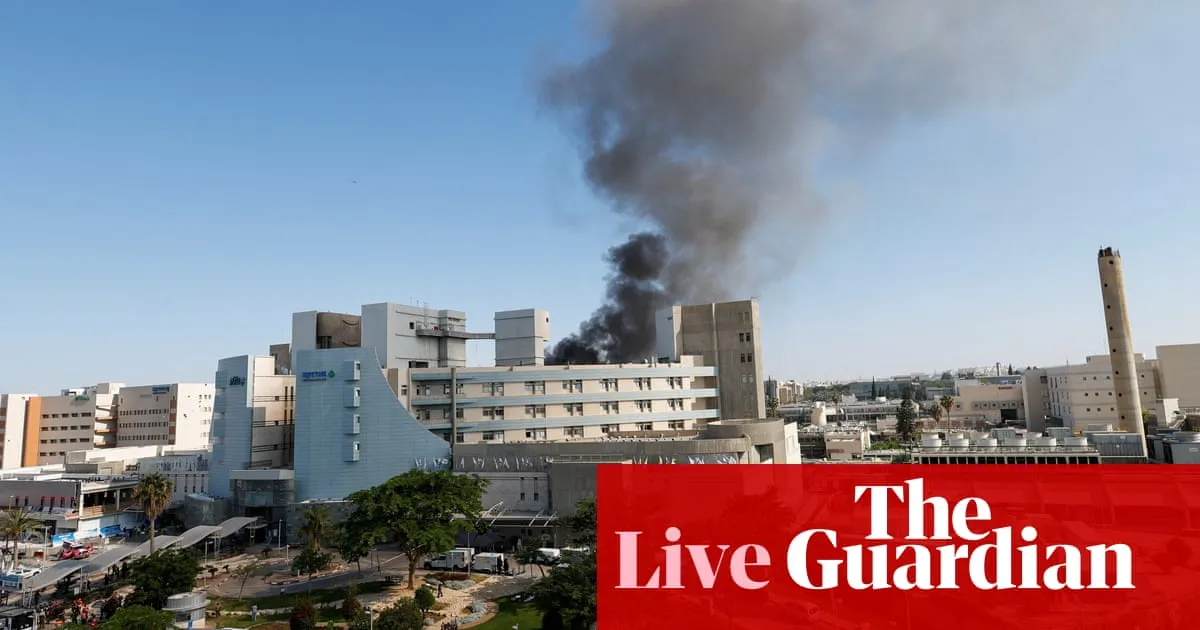
In a bold statement on Thursday, Israel's Defence Minister Israel Katz proclaimed that Iran's Supreme Leader, Ayatollah Ali Khamenei, “can no longer be allowed to exist.” This declaration follows a missile attack on the Soroka hospital in southern Israel, attributed to Iran. According to reports from Agence France-Presse (AFP), Katz emphasized Khamenei's open desire for Israel's destruction, citing that he “personally gives the order to fire on hospitals,” thus stating, “Such a man can no longer be allowed to exist.”
On the same day, Tom Barrack, the U.S. special envoy for Syria, issued a warning to the Lebanese group Hezbollah against intervening in the escalating conflict between Iran and Israel. Barrack, who is also the U.S. ambassador to Turkey, met with prominent Lebanese officials, including Parliament Speaker Nabih Berri, an ally of Hezbollah. He cautioned, “I can say on behalf of President Donald Trump … that would be a very, very, very bad decision,” in response to inquiries about any potential involvement by Hezbollah in the ongoing war.
In a tragic incident, Israeli fire resulted in the deaths of at least 25 individuals in Gaza on Thursday, as reported by Gaza’s civil defense agency. Among the deceased, 15 were killed near an aid distribution site in central Gaza’s Netzarim corridor. Civil defense official Mohammad al-Mughayyir confirmed that 60 others were wounded while waiting for assistance. Witnesses described a chaotic scene as gunfire intensified, making it nearly impossible for individuals to escape the violence.
The Associated Press reported that at least 240 people sustained injuries from the Iranian missile strikes on Thursday morning, with four individuals in critical condition. The majority of those affected were lightly wounded, including over 70 patients from the Soroka hospital in Beersheba, which was directly struck by a missile. Emergency teams were seen evacuating patients as smoke billowed from the hospital following the explosion.
In retaliation, Israel launched an attack on Iran’s Arak heavy water reactor, as noted by Iranian state television. Officials confirmed that there was “no radiation danger whatsoever,” and the facility had been evacuated prior to the strike. This military action is part of Israel's broader response to the missile attacks it has faced.
As tensions rise, Israeli airstrikes in southern Lebanon have resulted in casualties. Israeli forces reported killing two Hezbollah members during recent attacks, further escalating the conflict in the region. Despite a ceasefire in place, Israeli officials have vowed to continue operations against Hezbollah until disarmament occurs.
Iran’s Foreign Minister Abbas Araqchi confirmed a meeting with European foreign ministers scheduled for Friday in Geneva, a potential step towards diplomatic resolution amidst ongoing hostilities. This meeting marks the first face-to-face discussion since the conflict escalated, highlighting the urgent need for international intervention.
China has urged all parties in the conflict to cease hostilities, emphasizing the need for peace in the region. A spokesperson stated, “China strongly calls on all parties involved in the conflict, especially Israel, to put the interests of the region’s people first.”
The ongoing conflict between Israel and Iran has led to significant military actions, including missile strikes and retaliatory attacks. The Soroka hospital incident serves as a stark reminder of the humanitarian impact of this conflict, which has resulted in numerous casualties and injuries. As diplomatic channels attempt to reopen, the situation remains volatile, with heightened tensions threatening regional stability.